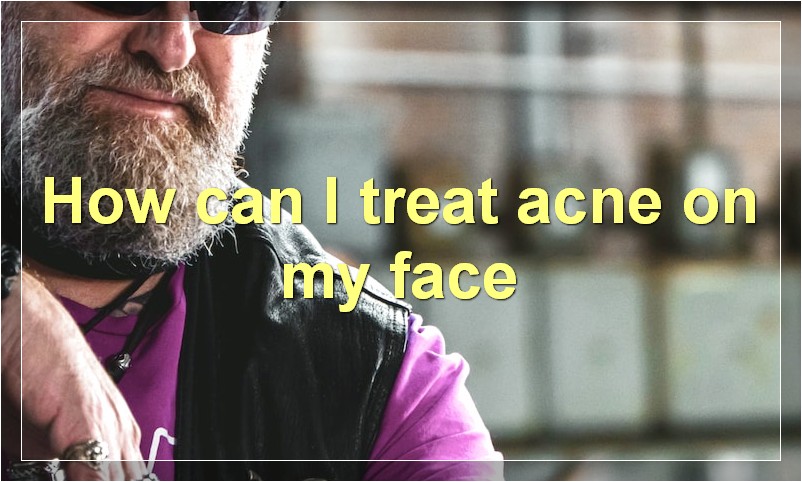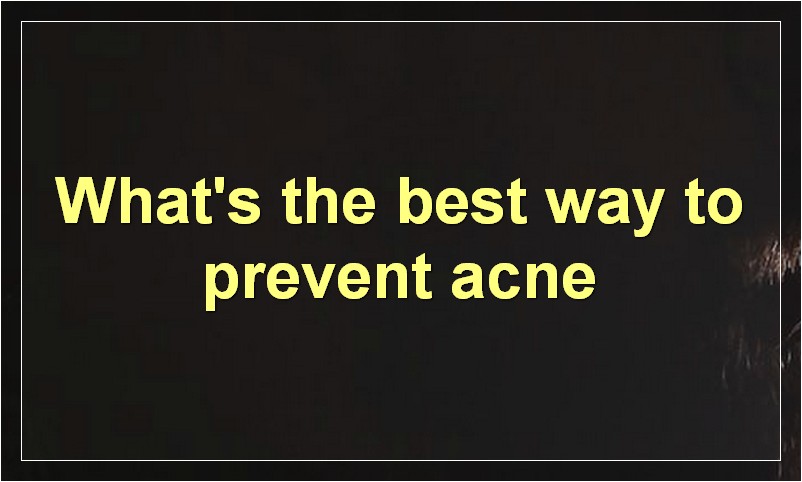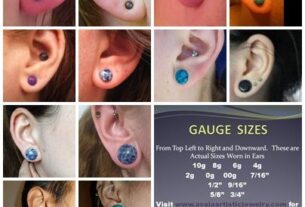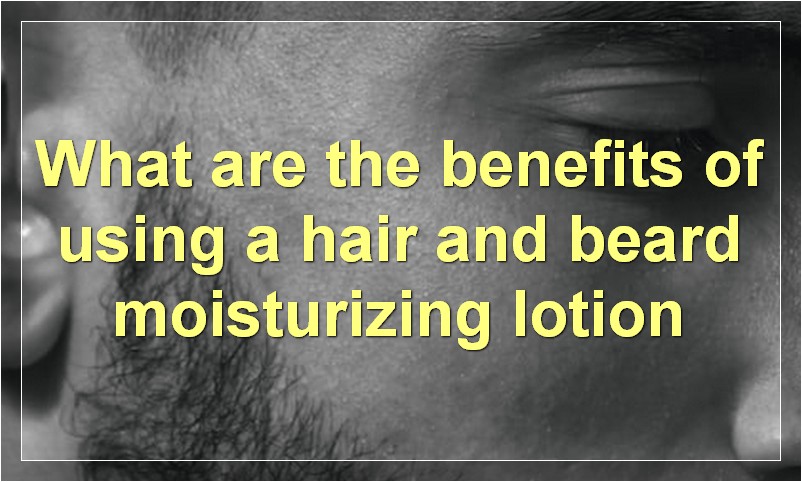Acne is one of the most common skin problems that teenagers face. It can be embarrassing and cause low self-esteem. Fortunately, there are treatments available that can help clear up acne and prevent it from coming back.
What are some common facial problems for teenagers
Acne is the most common skin condition in the United States. If you’re a teenager, chances are good that you have some acne. About 80 percent of all people between the ages of 11 and 30 have acne outbreaks at least occasionally. Acne can occur on the face, neck, shoulders, chest, and back. It most often appears on the face in the form of pimples, blackheads, or whiteheads.
Acne occurs when the pores of your skin become plugged with oil and dead skin cells. When this happens, bacteria can grow and cause inflammation. The result is pimples, blackheads, whiteheads, or cysts.
There are many myths about what causes acne. Chocolate and greasy foods are often blamed, but there is no proven link between diet and acne. Stress does not cause acne, but it can make it worse.
Acne is not caused by dirt, so washing your face more than twice a day will not prevent pimples from forming. In fact, scrubbing too hard or using harsh cleansers may actually irritate your skin and make your acne worse. The best way to clean your face is to gently wash it with a mild soap and warm water.
There is no single cure for acne. But there are many treatments that can help clear up your skin. The key is to find the right one for you. Treatment options include topical creams, oral medications, laser and light therapies, and chemical peels.
Topical creams and gels are applied to the skin and usually contain benzoyl peroxide, salicylic acid, or retinoids. These ingredients help to unplug pores, reduce inflammation, and kill bacteria. They are available over the counter or by prescription.
Oral medications include antibiotics to kill bacteria and reduce inflammation as well as birth control pills for women with hormonal acne. Isotretinoin (Accutane) is a powerful medication that is used for severe cases of acne that do not respond to other treatments. It can have serious side effects, so it must be prescribed by a dermatologist and closely monitored by a doctor while you are taking it.
Laser therapy uses intense pulses of light to kill bacteria and shrink oil glands. This can help reduce the number of pimples and prevent new ones from forming. Light therapy uses blue light waves to kill bacteria. It can be done in a dermatologist’s office or at home with a device that is available without a prescription.
Chemical peels use a chemical solution to remove the top layer of skin, which helps to unplug pores and clear up acne lesions. Chemical peels are usually done in a dermatologist’s office.
How can I treat acne on my face
Acne is a common skin condition that affects people of all ages. There are many myths about what causes acne and how to treat it, but the fact is that there is no one “right” way to treat acne. However, there are some general tips that can help you control your acne and keep your skin looking its best.
First, it’s important to understand that acne is caused by a combination of factors, including hormones, genetics, and the environment. You can’t change your genes or the environment, but you can change how you care for your skin.
Wash your face twice a day with a mild cleanser. Avoid scrubbing or using harsh soaps, which can irritate your skin and make acne worse. Be sure to remove all makeup before washing your face.
Use a non-comedogenic moisturizer to keep your skin hydrated. Moisturizers help prevent the skin from overproducing oil, which can lead to clogged pores and breakouts.
If you wear makeup, choose products that are non-comedogenic and oil-free. Remove all makeup before going to bed.
Exfoliate your skin once or twice a week with a gentle scrub or exfoliating pad. This will help remove dead skin cells that can clog pores and cause breakouts.
Avoid touching your face throughout the day. Touching your face can transfer bacteria and oils from your hands to your face, which can cause breakouts.
If you have severe acne, you may need to see a dermatologist for treatment options. Dermatologists can prescribe oral medications or topical treatments that are more effective than over-the-counter products.
What are some home remedies for pimples
Acne is a common skin condition that affects many people around the world. Though there are many commercial treatments available, some people prefer to use home remedies for pimples.
There are a number of different home remedies for pimples that you can try. Some of these include using lemon juice, baking soda, apple cider vinegar, and honey.
Lemon juice is one of the most popular home remedies for pimples. Lemon juice contains citric acid, which is thought to help reduce the size of pimples. To use this remedy, simply apply lemon juice to a cotton ball and apply it to the affected area.
Baking soda is another popular home remedy for pimples. Baking soda helps to dry out the skin and can also help to reduce the redness and swelling associated with pimples. To use this remedy, mix baking soda with water to form a paste. Apply the paste to the affected area and allow it to dry.
Apple cider vinegar is another effective home remedy for pimples. Apple cider vinegar contains acetic acid, which is thought to help kill the bacteria that cause acne. To use this remedy, apply apple cider vinegar to a cotton ball and apply it to the affected area.
Honey is another popular home remedy for pimples. Honey is thought to have antibacterial properties that can help to kill the bacteria that cause acne. To use this remedy, apply honey to a cotton ball and apply it to the affected area.
Why do I have so many blackheads
Blackheads are one of the most common and frustrating skin concerns. They can be difficult to get rid of, and even more difficult to prevent. But why do we get blackheads in the first place?
There are a few reasons. First, blackheads are caused by a build-up of dead skin cells, sebum (oil), and bacteria. When these things mix together, they can clog pores and create a perfect environment for blackheads to form.
Second, genetics play a role in blackhead formation. If your parents or grandparents had blackheads, you’re more likely to have them as well.
Finally, certain lifestyle choices can increase your risk of blackheads. For example, if you wear a lot of makeup or don’t clean your face properly, you’re more likely to develop blackheads.
So now that we know what causes blackheads, let’s talk about how to get rid of them. The first step is to gentle cleanse your face twice a day with a mild cleanser. This will help remove any dirt, oil, or makeup that could be clogging your pores.
Next, use an exfoliating scrub or mask once or twice a week to help slough away dead skin cells. This will also help unclog pores and prevent blackheads from forming.
Finally, use a pore-clearing toner or serum daily. These products help to control oil production and keep pores clear.
If you’re struggling with blackheads, these tips should help you get them under control. Remember, consistent cleansing and exfoliation is key to keeping blackheads at bay.
How do I get rid of them
There are many ways to get rid of pests, but the most important thing is to identify the type of pest you have. Once you know what kind of pest you’re dealing with, you can take the appropriate steps to get rid of them.
If you have rats, mice, or other rodents, the best way to get rid of them is to trap them. You can buy traps at your local hardware store, or you can make your own. Be sure to check the traps regularly, and dispose of the rodents in a safe place.
If you have ants, roaches, or other insects, the best way to get rid of them is to use an insecticide. You can buy insecticides at your local hardware store, or you can make your own. Be sure to follow the directions on the label carefully, and keep children and pets away from the area until the insecticide has dried.
If you have birds, bats, or other animals in your home, the best way to get rid of them is to call a professional. A professional will be able to safely remove the animals from your home and prevent them from coming back.
Getting rid of pests can be difficult, but it’s important to do if you want to keep your home safe and healthy. If you’re not sure how to get rid of pests, be sure to ask a professional for help.
What’s the best way to prevent acne
Acne is a very common skin condition that can affect people of all ages. There are many different factors that can contribute to the development of acne, such as genetics, hormones, and diet. While there is no surefire way to prevent acne from developing, there are certain things that you can do to lessen your chances of developing this condition.
One of the best ways to prevent acne is to keep your skin clean. Wash your face twice a day with a mild cleanser and be sure to remove all makeup before going to bed. In addition, try to avoid touching your face throughout the day as this can transfer bacteria and oils onto the skin.
It’s also important to eat a healthy diet as this can help to regulate hormone levels and reduce inflammation. Foods that are high in antioxidants, omega-3 fatty acids, and vitamin A are particularly beneficial for preventing acne.
Finally, if you are susceptible to acne breakouts, it’s important to use products that are non-comedogenic and won’t clog your pores. Look for products that contain benzoyl peroxide or salicylic acid as these ingredients can help to kill bacteria and dry up excess oil.
How can I make my skin look better
When it comes to skin, we all want what’s best for it. We want to know how to make our skin look better so that we can feel better about ourselves. There are a lot of different ways that you can make your skin look better. Some people swear by using certain products, while others find that changing their diet is the key to success.
If you’re looking for ways to make your skin look better, then you’ve come to the right place. We’re going to share with you some of the best tips and tricks that we know of. So, whether you’re looking for information on how to get rid of acne or simply want to know how to make your skin look its best, keep reading.
One of the first things that you need to do if you want to make your skin look better is to clean it properly. This means using a cleanser that’s right for your skin type and washing your face twice a day. If you wear makeup, be sure to remove it before you go to bed so that your skin can breathe overnight.
In addition to cleansing your skin, you also need to make sure that you’re exfoliating on a regular basis. Exfoliating helps to remove dead skin cells from the surface of your skin so that new, healthy ones can grow in their place. There are a lot of different exfoliators on the market, so be sure to find one that’s right for your skin type.
If you want to know how to make your skin look better, then you need to pay attention to what you eat. Eating a healthy diet is essential for clear, glowing skin. Be sure to include plenty of fruits and vegetables in your diet as well as foods that are high in healthy fats like Omega-3s.
Drinking plenty of water is also important if you want to improve the appearance of your skin. Water helps to keep your skin hydrated and flush out toxins. aim to drink eight glasses of water each day.
Finally, be sure to protect your skin from the sun by wearing sunscreen every day. Sun damage is one of the leading causes of premature aging, so it’s important to take steps to prevent it. Apply sunscreen with an SPF of 30 or higher every day, even on cloudy days.
By following these tips, you should see a noticeable difference in the appearance of your skin in no time. Just remember that good skin care takes time and consistency. So, don’t get discouraged if you don’t see results immediately. With a little patience and effort, you can have the beautiful, healthy skin that you’ve always wanted.
What are some natural ways to clear up acne
Acne is a common skin condition that affects people of all ages. There are many different factors that can contribute to the development of acne, including hormones, diet, and stress. While there is no cure for acne, there are several natural treatments that can help to clear up the skin.
One of the most important things that you can do to treat acne is to keep your skin clean. Wash your face at least twice a day with a mild cleanser and warm water. Avoid scrubbing your skin too harshly, as this can irritate the skin and make acne worse. You should also avoid touching your face with your hands or picking at your pimples, as this can cause them to become inflamed and infected.
In addition to keeping your skin clean, you can also treat acne by using natural topical treatments. Tea tree oil is a popular natural acne treatment that has antibacterial properties. You can apply tea tree oil directly to the skin using a cotton ball or cotton swab, or you can add it to your favorite lotion or facial cream. Aloe vera gel is another popular topical treatment for acne; it has anti-inflammatory properties that can help to soothe the skin and reduce redness.
If you are looking for a more systemic approach to treating acne, you may want to consider taking supplements. Zinc is an essential mineral that helps to regulate hormone levels in the body and has been shown to be effective in treating acne. You can take zinc supplements orally or topically. Vitamin A is another nutrient that is important for healthy skin; it can be found in foods like carrots, sweet potatoes, and spinach. Consider adding these foods to your diet or taking a vitamin A supplement if you are struggling with acne.
Finally, remember that reducing stress can also be helpful in clearing up acne. Stress causes the body to produce hormones like cortisol, which can trigger breakouts. Try to find ways to relax and de-stress, such as yoga, meditation, or spending time outdoors in nature.
What’s the best skincare routine for teenage skin
When it comes to skincare, there is no one-size-fits-all solution. Just as every teenager is different, so is their skin. However, there are some general tips that can help you create the best skincare routine for your teenage skin.
First, it’s important to cleanse your skin twice a day. This will help remove any dirt, oil and impurities that can clog pores and lead to breakouts. Choose a gentle cleanser that won’t strip your skin of its natural oils.
Next, use a toner. Toners help balance the pH of your skin and can be particularly helpful in controlling oily skin. Choose a toner that contains ingredients like witch hazel or rosewater.
Once your skin is clean and balanced, it’s time to moisturize. Moisturizing is essential for all skin types, but it’s especially important for teenage skin, which is often going through hormonal changes that can cause dryness. Choose a light, non-greasy moisturizer that will hydrate your skin without clogging pores.
Finally, don’t forget to protect your skin from the sun. Use a sunscreen with an SPF of 30 or higher every day, even if you’re just going to school or running errands. UV damage can cause premature aging, so it’s important to start protecting your skin now.
By following these simple tips, you can help keep your teenage skin healthy and happy.
What ingredients should I avoid if I have acne-prone skin
When it comes to acne-prone skin, there are a few key ingredients that you should avoid in order to keep your skin clear and free of blemishes. Here are four ingredients to avoid if you have acne-prone skin:
1. Alcohol – Alcohol is a common ingredient in many skincare products, but it can be very drying and irritating to acne-prone skin. Alcohol can strip away the natural oils from your skin, leaving it dry, tight and more susceptible to breakouts.
2. Fragrance – Many skincare products contain synthetic fragrances that can cause irritation and dryness, which can trigger or worsen acne breakouts. If a product contains fragrance, look for one that is unscented or has a natural, gentle scent.
3. Sulfates – Sulfates are harsh cleansing agents that can strip away the natural oils from your skin, leaving it dry and irritated. Sulfates can also aggravate existing acne breakouts. Look for skincare products that are sulfate-free.
4. Parabens – Parabens are preservatives that are commonly used in skincare products. However, they can be irritating to the skin and may trigger or worsen acne breakouts. Look for skincare products that are paraben-free.
By avoiding these four ingredients, you can help keep your acne-prone skin clear and free of blemishes.
Table of Contents






